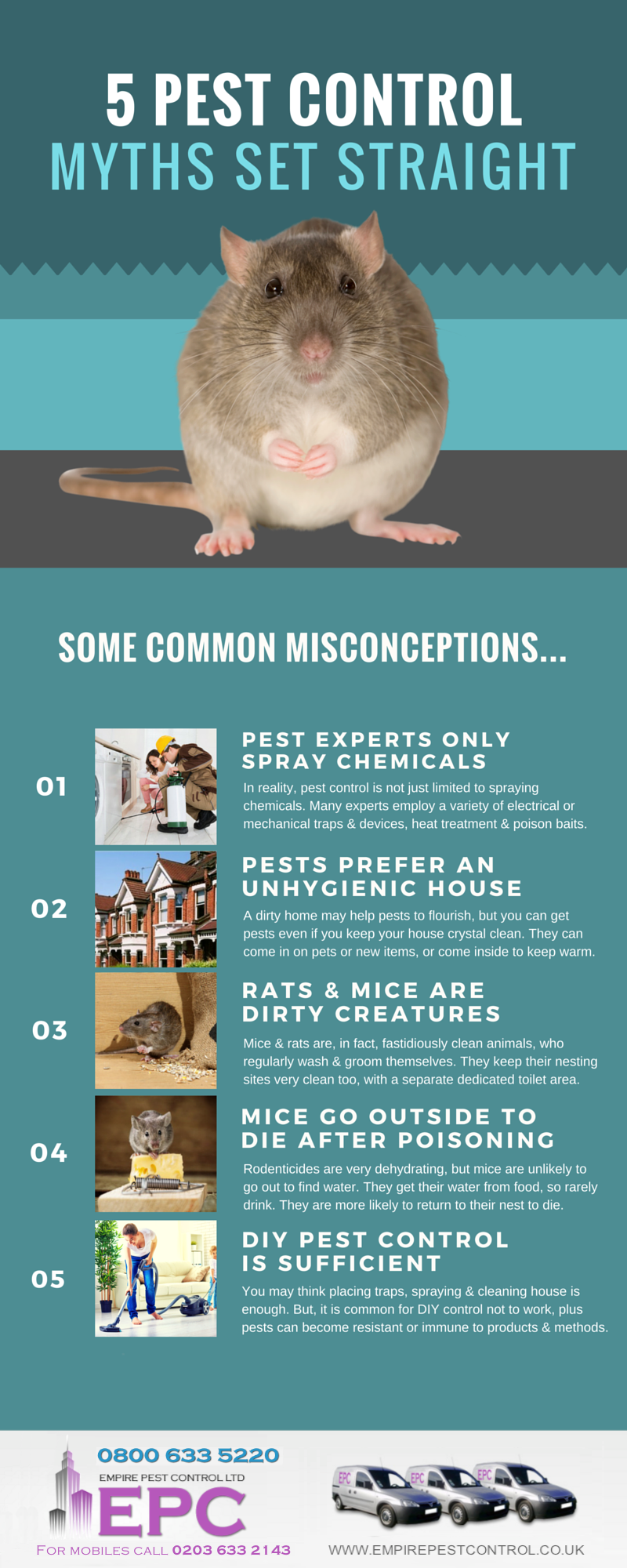Recognizing Rodent Behavior: Expert Insights For Effective Pest Control
Recognizing Rodent Behavior: Expert Insights For Effective Pest Control
Blog Article
Web Content By-Arsenault McNamara
Envision being able to expect the steps of your challengers in a game of chess, always staying one step ahead.
In the world of parasite control, recognizing rodent actions resembles having that tactical advantage. By getting professional understandings right into the nesting practices, feeding patterns, and communication and social habits of rodents, you can efficiently battle these pesky creatures.
However how precisely do rodents behave, and why is it important to understand? In this conversation, we will certainly decipher the enigmas of rodent behavior, providing you with important understanding that will assist you stay in advance in the battle against parasites.
Are you prepared to uncover the tricks of these cunning animals?
Nesting Behaviors
To comprehend rodent behavior and effectively control bugs, it's important to gain understanding right into their nesting habits.
Rodents, such as computer mice and rats, have an all-natural impulse to discover sanctuary and create nests where they feel safe and safe and secure. These nests function as their homes, breeding premises, and storage space locations for food. Understanding their nesting habits can assist you identify prospective areas of problem and apply targeted control steps.
hornet removal near me like nesting in dark, secluded spaces, such as attics, cellars, crawl spaces, and wall surface spaces. They make use of products like shredded paper, material, insulation, and even chewed-up electrical wires to develop their nests.
Feeding Patterns
Rats exhibit unique feeding patterns that play a crucial duty in their behavior and can inform reliable bug control methods. Understanding these patterns is necessary for carrying out effective pest control procedures.
Rats are opportunistic feeders, implying they'll take in whatever food is conveniently available. They've a preference for high-calorie foods such as grains, nuts, and seeds. This is why proper storage of food and waste administration are important in stopping rodent infestations.
Additionally, rodents are nocturnal, which indicates they're most energetic during the evening when they search for food. By understanding their feeding patterns, you can purposefully position catches and baits to optimize their performance.
Maintaining food sources unattainable and preserving a tidy environment can aid discourage rodents and minimize the danger of problem.
Communication and Social Behavior
Recognizing just how rodents connect and engage socially is important for reliable bug control techniques. Rats, like computer mice and rats, have complex interaction systems that they make use of to communicate information to every other and collaborate their tasks. Below are 3 key facets of rodent communication and social habits:
1. Articulations: Rodents produce a vast array of vocal noises, including squeaks, chirps, and babbling, to connect with each other. These articulations can communicate different messages, such as threat warnings or mating phone calls.
2. Scent noting: Rats utilize scent glands to leave chemical signals on things and in their atmosphere. These scent marks act as territorial boundaries and communicate information regarding reproductive condition, dominance, and social association.
3. Social hierarchy: Rodents have a hierarchical social structure, with leading individuals having accessibility to resources and preferred nesting sites. Comprehending this pecking order is essential for targeting bug control efforts and recognizing key individuals for elimination.
Conclusion
So, there you have it - a short peek right into the remarkable world of rodent actions. By recognizing their nesting practices, feeding patterns, and communication, we can much better deal with the problem of pest control.
Did read this know that a women computer mouse can create approximately 10 trashes annually, with each litter including around 5-6 dogs? This unbelievable fact highlights the value of timely and efficient parasite administration to avoid rodent populaces from spiraling out of hand.
